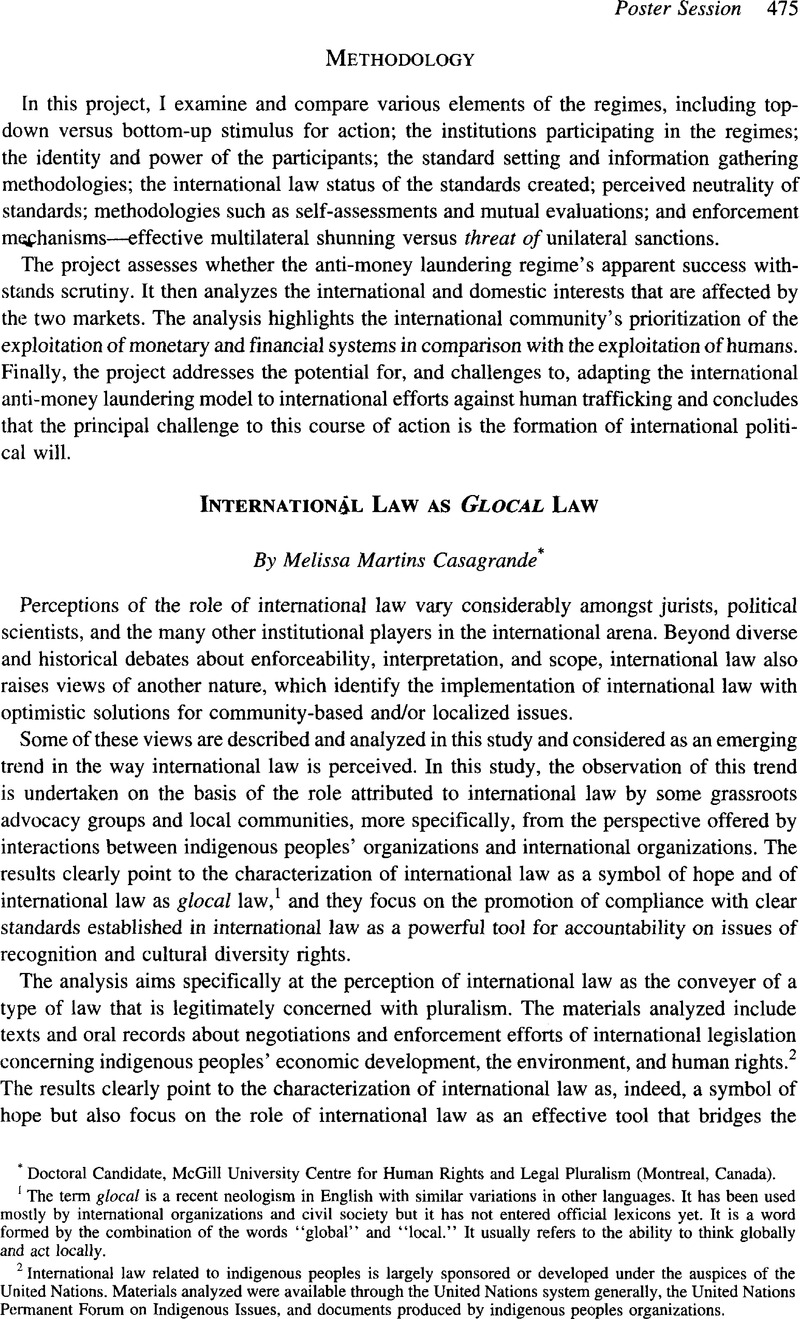No CrossRef data available.
Published online by Cambridge University Press: 28 February 2017

1 The term giocai is a recent neologism in English with similar variations in other languages. It has been used mostly by international organizations and civil society but it has not entered official lexicons yet. It is a word formed by the combination of the words “global” and “local.” It usually refers to the ability to think globally and act locally.
2 International law related to indigenous peoples is largely sponsored or developed under the auspices of the United Nations. Materials analyzed were available through the United Nations system generally, the United Nations Permanent Forum on Indigenous Issues, and documents produced by indigenous peoples organizations.
3 Targeted or localized monitoring of human rights standards in this context refers to the practice of disaggregation of data collected for local and national purposes aiming to acquire an accurate understanding of indigenous peoples‘ situations in order to monitor the impact of existing initiatives or the development of new ones. See generally United Nations Permanent Forum on Indigenous Issues, Report of the International Expert Workshop on Data Collection and Disaggregation for Indigenous Peoples, 3d Sess., UN Doc. B/C. 19/2004/2.
4 See, e.g., United Nations Permanent Forum on Indigenous Issues, Indigenous Peoples, Indigenous Voices (United Nations Department of Public Information, 2007).
5 See generally Anaya, S. James, Indigenous Peoples in International Law 61-72 (2d ed. 2004)Google Scholar.
6 Some aspects of this unique existence are described in the preamble of the United Nations Declaration on the Rights of Indigenous Peoples, GA Res. 61/295, UN GAOR, 61st Sess., UN Doc. A/RES/61/295 (2007).